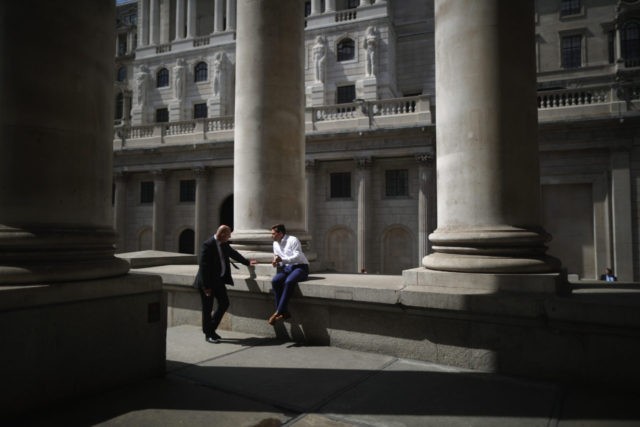Nearly a month on from Britain’s historical vote to exit the European Union (EU), the Bank of England has admitted that the British economy shows no sign of slowing down, negating doom-laden forecasts made during the EU referendum campaign.
A monthly study issued by the Bank of England’s agents, who survey British businesses in situ, has found that most companies are continuing with business as usual despite the momentous decision, the Daily Mail has reported.
And although the agents found that there had been a marked rise in business uncertainty as Britain prepares to enter a two year long exit negotiation with her former Brussels partners, they further found that companies do not expect that uncertainty to impact their investment or hiring plans.
“As yet, there was no clear evidence of a sharp general slowing in activity,” the report noted.
And contrary to Project Fear warnings from Remain campaigners that a vote to leave the EU would spark an exodus of businesses from the UK, the report found that some companies are considering a return to Britain or find more domestic suppliers thanks to the current relative weakness of the pound against other currencies.
Adam Tyler, chief executive of the National Association of Commercial Finance Brokers, said: “This latest report from the Bank of England will provide considerable encouragement to the UK business community.
“The findings are certainly consistent with what we are seeing on the ground, namely that most businesses are carrying on more or less as normal.
“Businesses are monitoring events closely, especially news surrounding future trading relations, but the corporate paralysis some suggested has simply not materialised.”
The country’s economic success post-Brexit will cause acute embarrassment to the Bank of England’s governor, Mark Carney, who faced calls to resign during the referendum campaign after he warned that leaving the EU could plunge Britain into a recession, causing house prices to crash, and wages to fall.
In the days following the vote he went on to tell an audience in central London that the economic outlook had “deteriorated”; comments which caused the pound to fall to a two-year low against the Euro.
But Mr. Carney is not the only financial figure with egg on his face following the Brexit vote.
In the run up to the vote, The International Monetary Fund’s Christine Lagarde said that quitting the EU would be “pretty bad to very, very bad” for Britain’s economy, adding that Brexit would result in a “protracted period of heightened uncertainty” for the country, possibly sparking a recession.
But the IMF has now released figures showing that Britain’s economy is growing faster than France or Germany’s.
It now expects the UK’s economy to grow by 1.7 per cent this year and 1.3 next year, while Germany’s economy is expected to grow by 1.6 per cent, and France’s by 1.3 per cent.

COMMENTS
Please let us know if you're having issues with commenting.